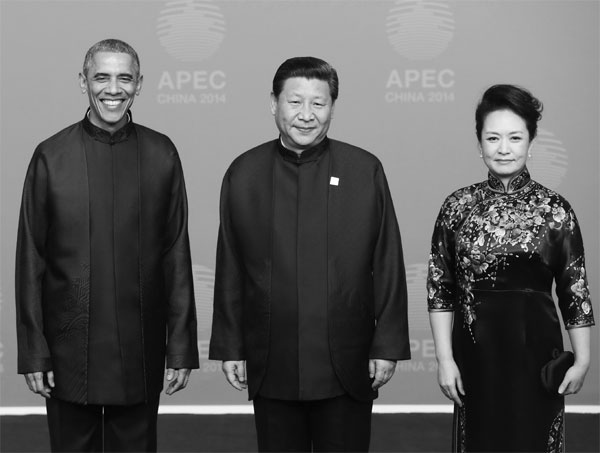The new 'new normal' is here
Updated: 2014-11-14 14:53
By Li Yang in Shanghai(China Daily USA)
|
||||||||
Xi Jinping first started using "the new normal" to describe the Chinese economy. Now, the term is more and more used to depict Chinese politics. The question now is what is the new normal and how will it influence China and the world.
The slowdown of the Chinese economy has given some people doubts about China's future but it is actually an inevitable part of the economic transformation. China cannot sustain its old growth model, which benefits from the population dividend and cheap resources.
Consumption, innovation and high-quality investment will replace export and blind investment as the main drivers for future qualitative growth. The government will spend more money improving people's livelihoods, and more time reforming the old government-dominated institutions, especially in finance, industry and governance, to give the market and the society more vitality and freedom.
The political "new normal" cannot be separated from the economic "new normal".
The government will meet more restrictions and supervision from the judicial authorities, the people's congress and the society while exercising their power. Government spending, earnings and debt will be more transparent for auditors and the public.
The people's congress at various levels needs to be more professional as lawmakers and budget inspectors. The judicial departments will earn their independence from interference by local government.
The Communist Party of China should also enter a "new normal". All Party members must abide by laws and a set of more strict Party disciplines. Senior officials will be held to account for their decisions.
Under the "new normal", it will not be much more difficult for the vested interest groups to maintain their positions as the main beneficiary of reform. Deepening reform should actually reform the irrational wealth distribution institutions that came into existence with the last round of reforms starting in the late 1970s.
The anti-graft campaign launched by President Xi Jinping reflects the new leadership's resolve to solve some protracted knotty issues left by his predecessors.
Several senior officials in the Party, government, army, people's congress and political consultative systems are slated for trials along with dozens of ministers and provincial leaders and hundreds of city and county heads.
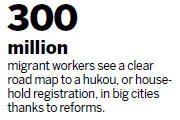
A big change of the "new normal" is that working in the government is to serve the people, rather than making money.
The people feel the differences the "new normal" is making in their life.
The reformers are defining the "new normal" with a series of new documents that, if implemented, will bring about big changes to society. More than 300 million migrant workers see a clear road map to a hukou, or household registration, in big cities.
Family planning policies are reformed to grant more couples the choice to have a second child. Farmers' property rights are recognized in new land reforms.
Reforms in the three areas of hukou, family planning and land issues used to seem like daunting tasks. Now, they are all kicked off overnight.
China assumes a "new normal" in dealing with external issues.
China has become a capital exporter with steadily rising foreign direct investment. China has also established international banks, such as the New Development Bank and Asia Infrastructure Investment Bank, with its neighbors and partners.
China is actively taking the lead in funding infrastructure construction, transportation, energy and resources around the world.
The two notable proposals of building a Silk Road economic belt on the Eurasian continent and the 21st Century Maritime Silk Road proposed by Xi are two important initiatives to make a good use of China's resources to enlarge China's international influence and compete for more global resources.
The Asia-Pacific Economic Cooperation Leaders' Meeting in Beijing conveys China's confidence and ability in adapting to its "new normal" and making new contributions to the world.
Even Xi demonstrates a "new normal" as China's leader. He speaks standard Chinese. He likes speaking his mind in simple words and sentences, rather than reading the lengthy and clich-ridden lecture notes. He and his wife appear more like an amicable couple, living next door to Chinese people.
liyang@chinadaily.com.cn
|
Chinese leader Xi Jinping and his wife Peng Liyuan take a photo with US President Barack Obama during the APEC Summit in Beijing. Wu Zhiyi / China Daily |
(China Daily USA 11/14/2014 page6)
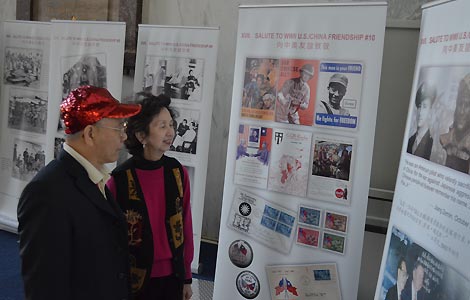
 Flying Tigers exhibit opens
Flying Tigers exhibit opens
 SpongeBob gets iced, via Harbin
SpongeBob gets iced, via Harbin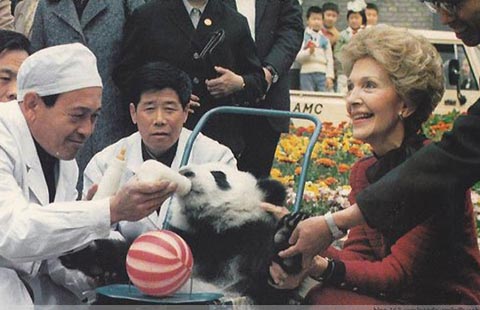
 Animal gifts smooth diplomatic relations
Animal gifts smooth diplomatic relations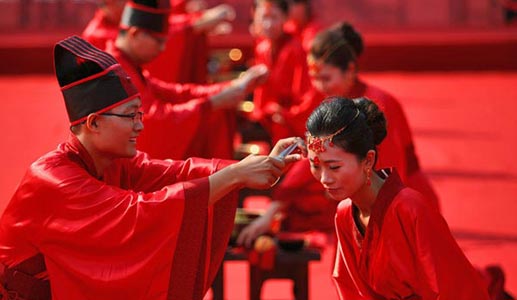
 Lovers wed en masse
Lovers wed en masse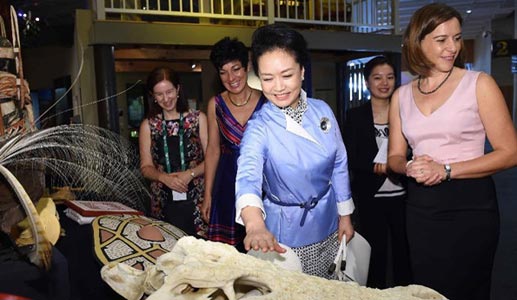
 Peng Liyuan visits Queensland Museum in Brisbane, Australia
Peng Liyuan visits Queensland Museum in Brisbane, Australia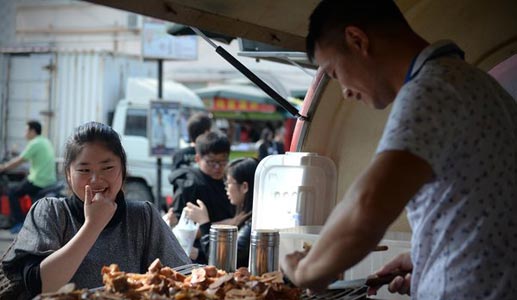
 Small businessman's Chinese Dream
Small businessman's Chinese Dream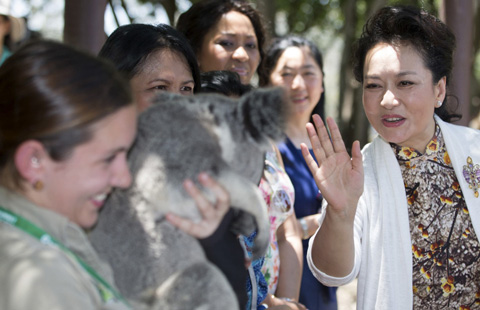
 First ladies cuddle up to koalas
First ladies cuddle up to koalas
 90's generations girls strive for their artistic future
90's generations girls strive for their artistic future
Most Viewed
Editor's Picks

|

|

|

|

|

|
Today's Top News
Remembering a great poet and his love of China with a statue and a reading
SpongeBob gets iced, via Harbin
China’s high-speed train technology stars at exhibit in Brazil
Chile builds on trade with China
Chinese companies seek marketing slam dunk with Nets
Animal gifts smooth diplomatic relations
Koalas steal the show at G20 in Brisbane
Oil reserves to be published regularly
US Weekly

|

|
